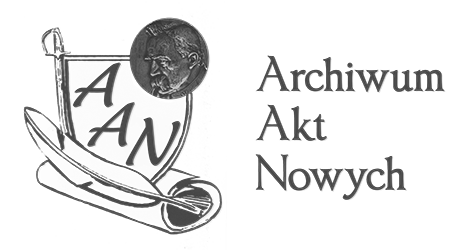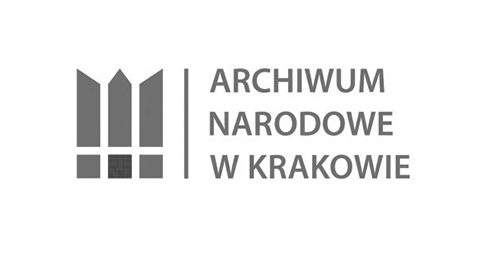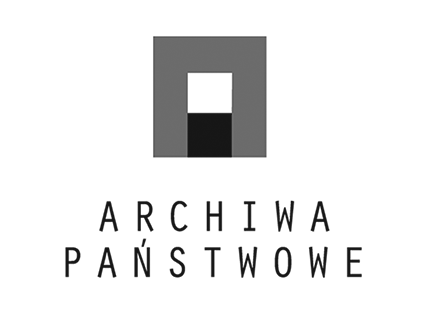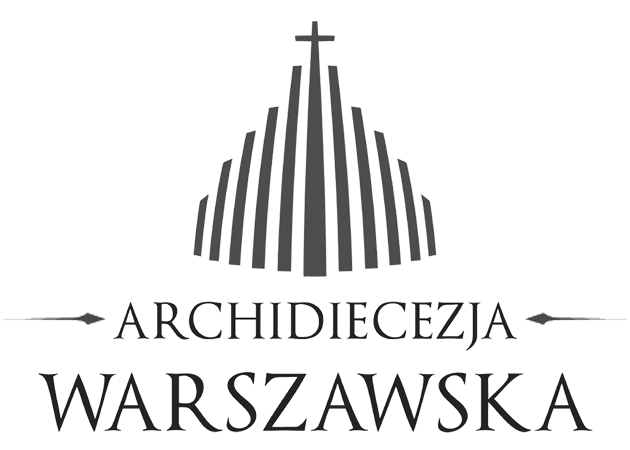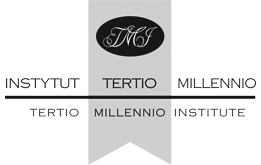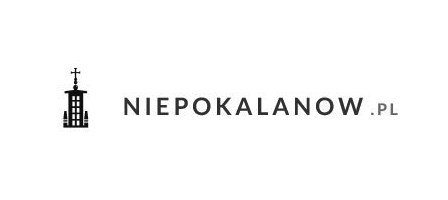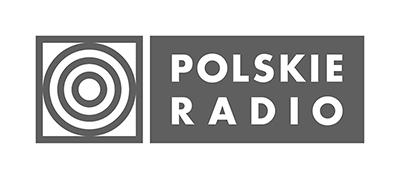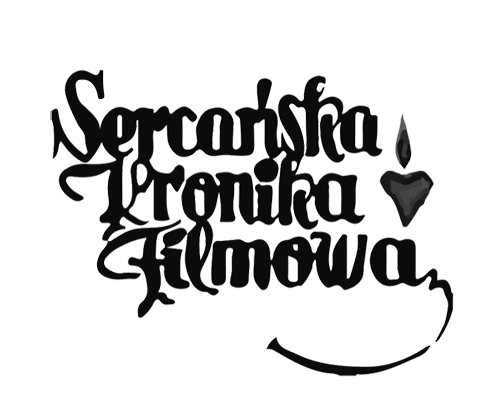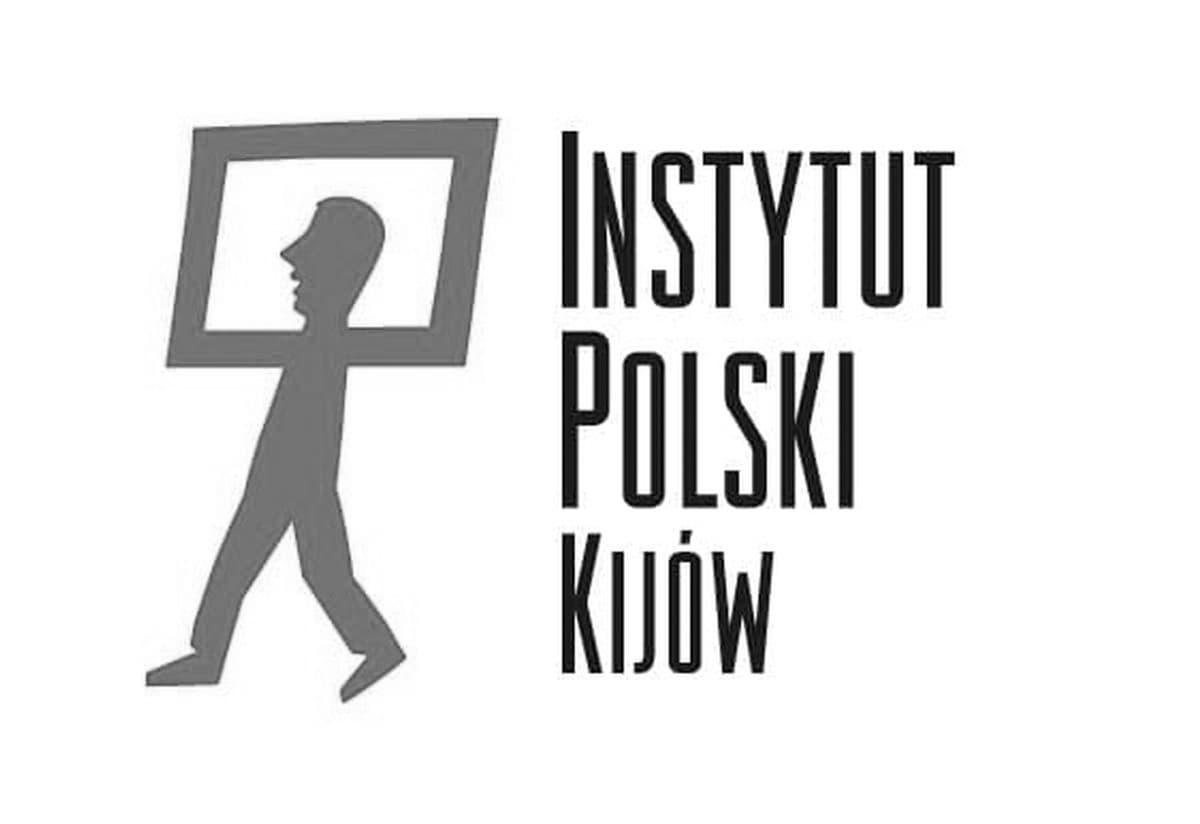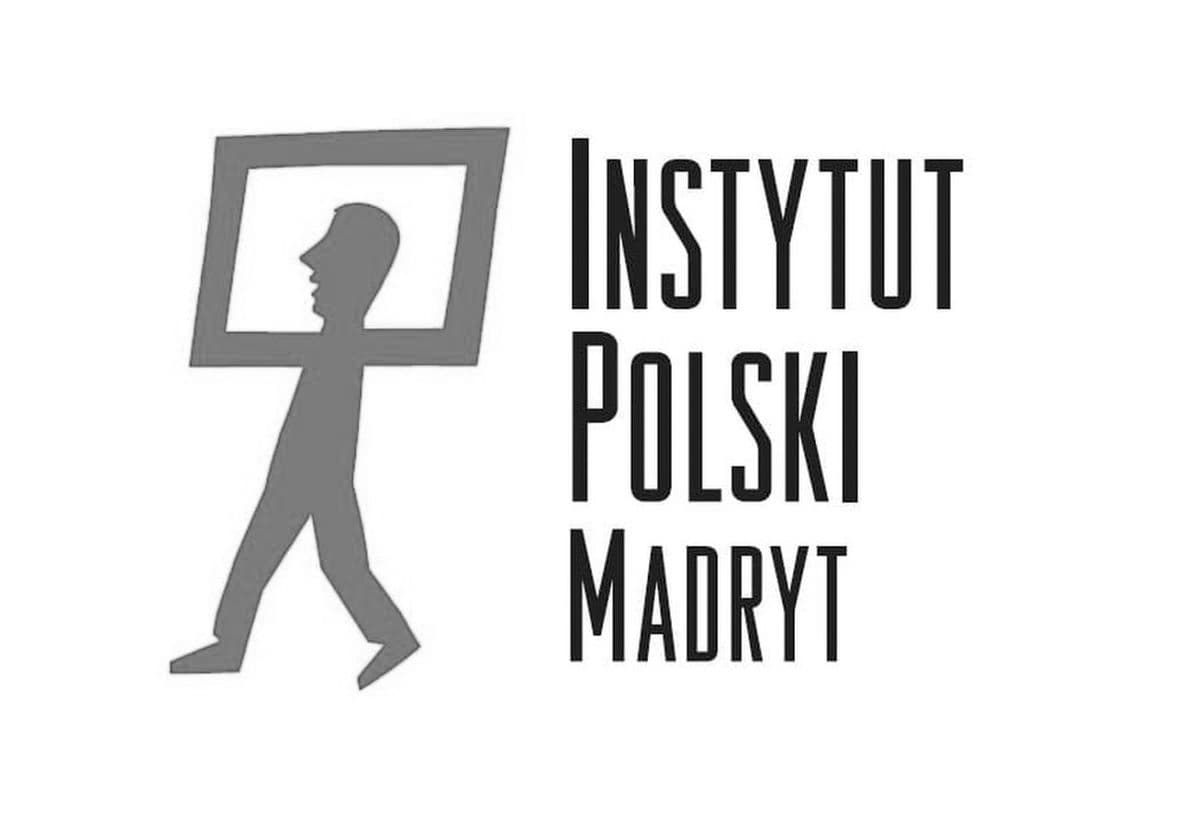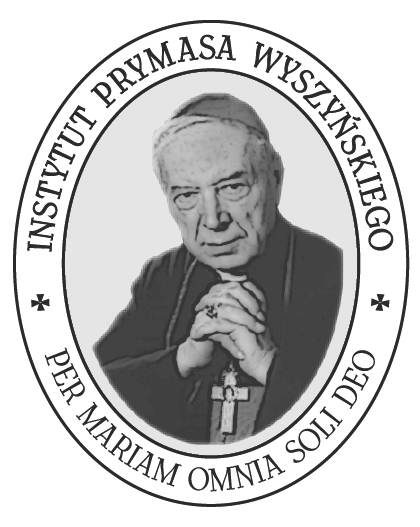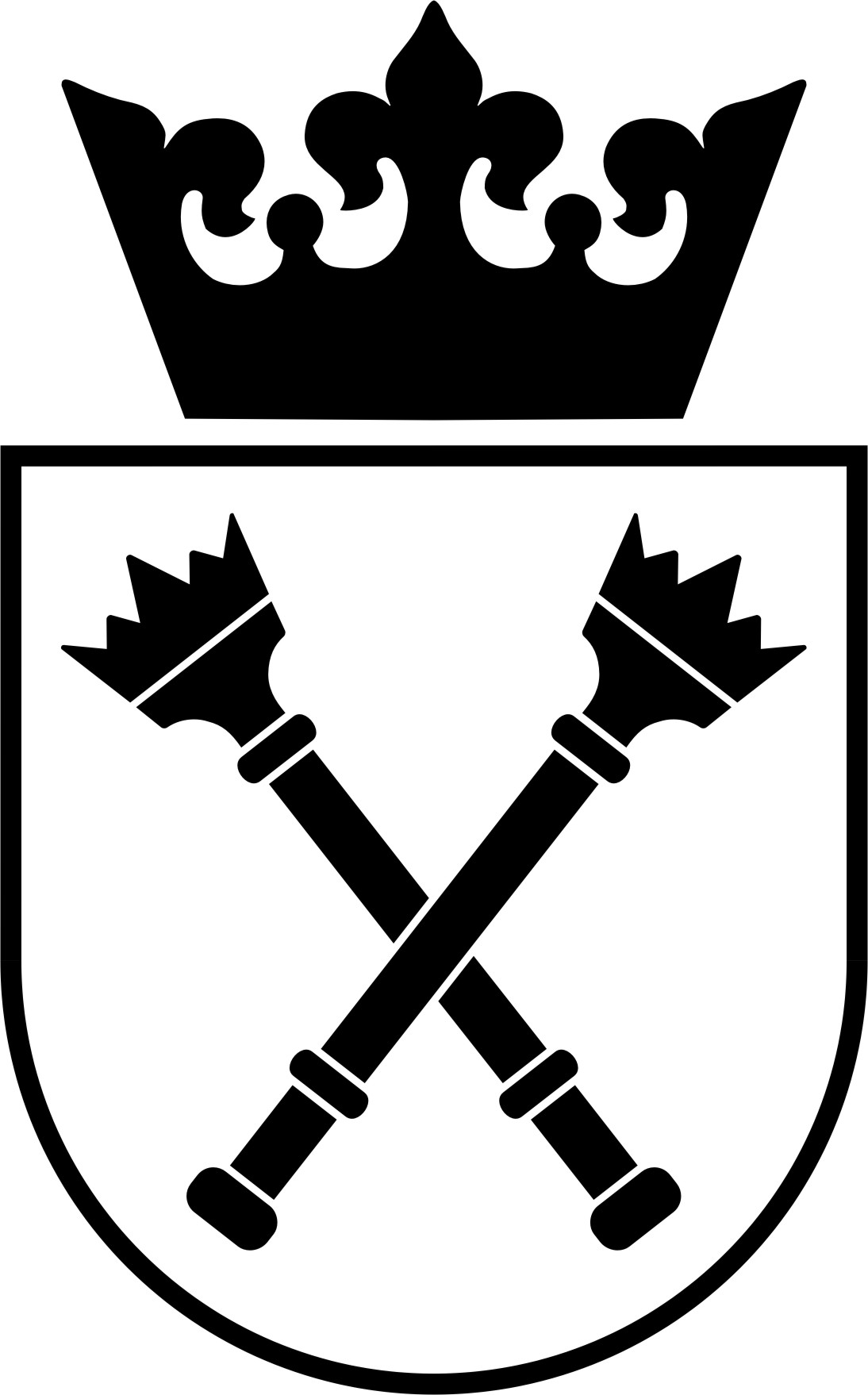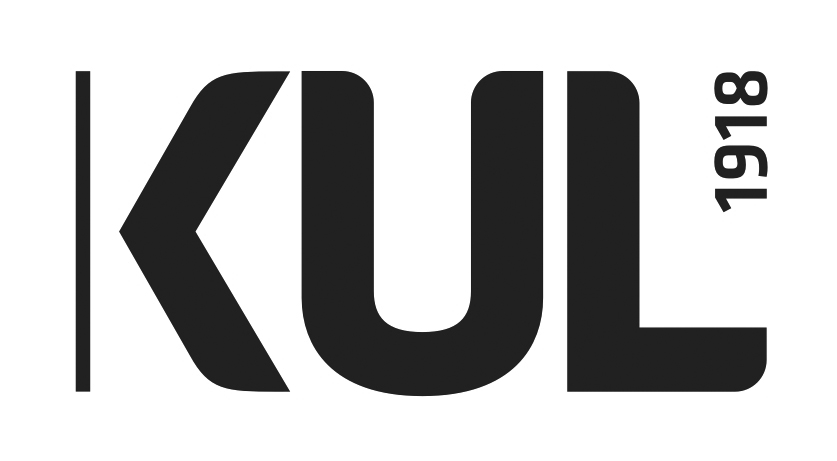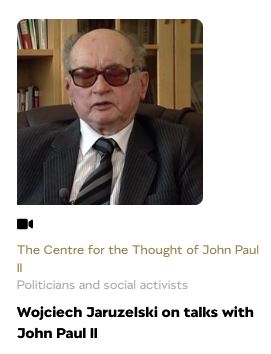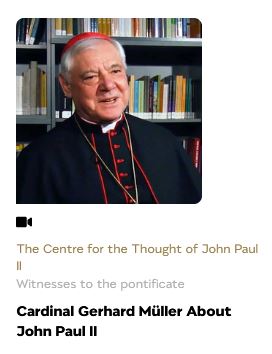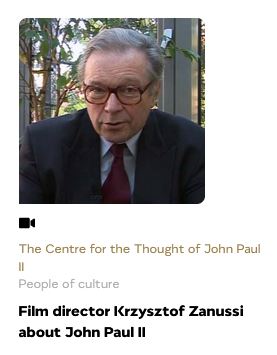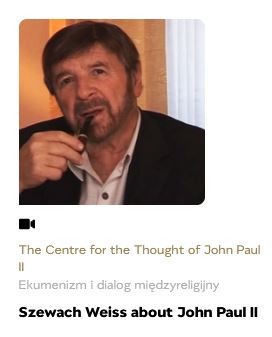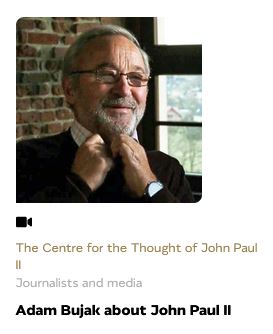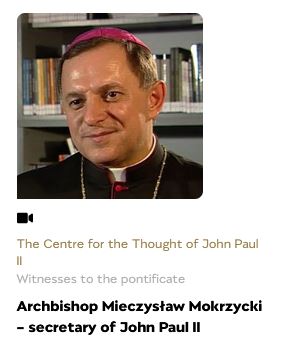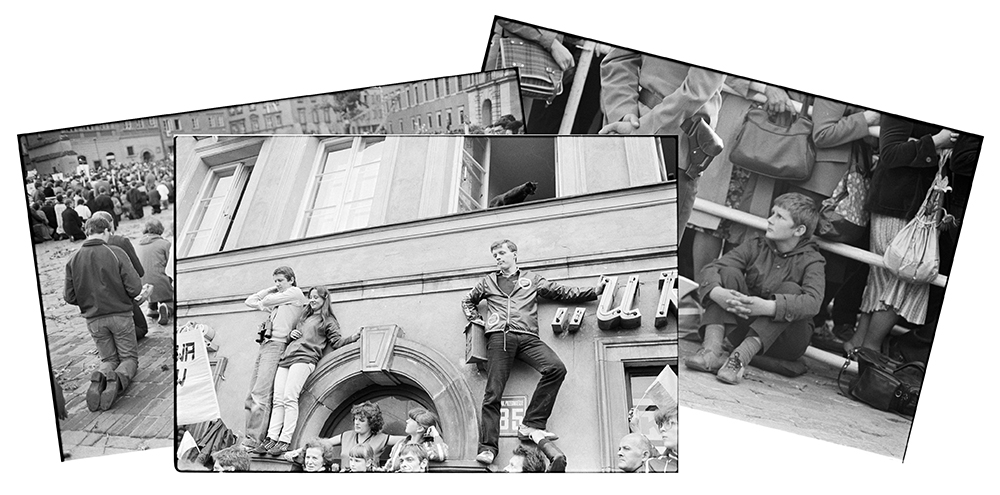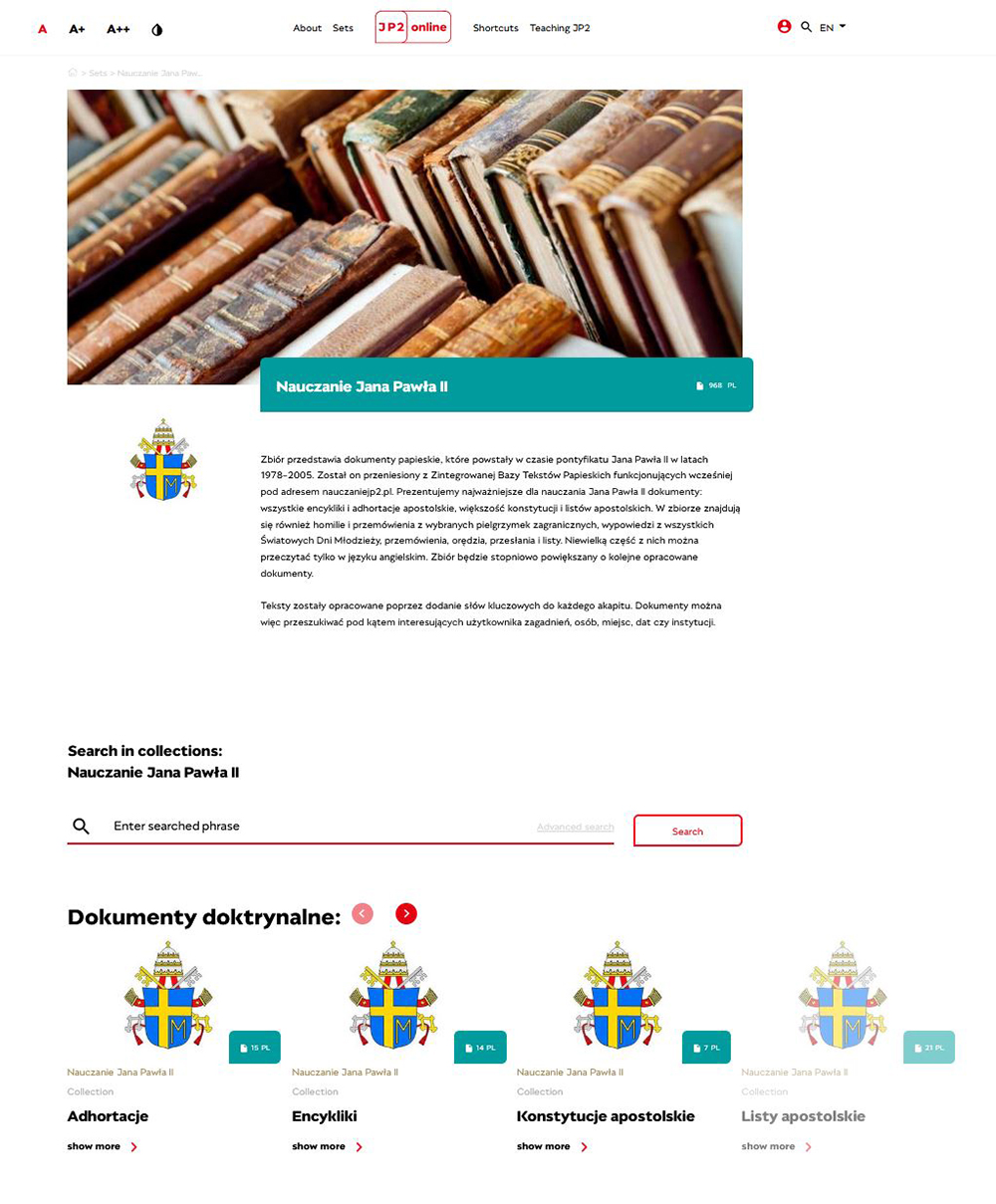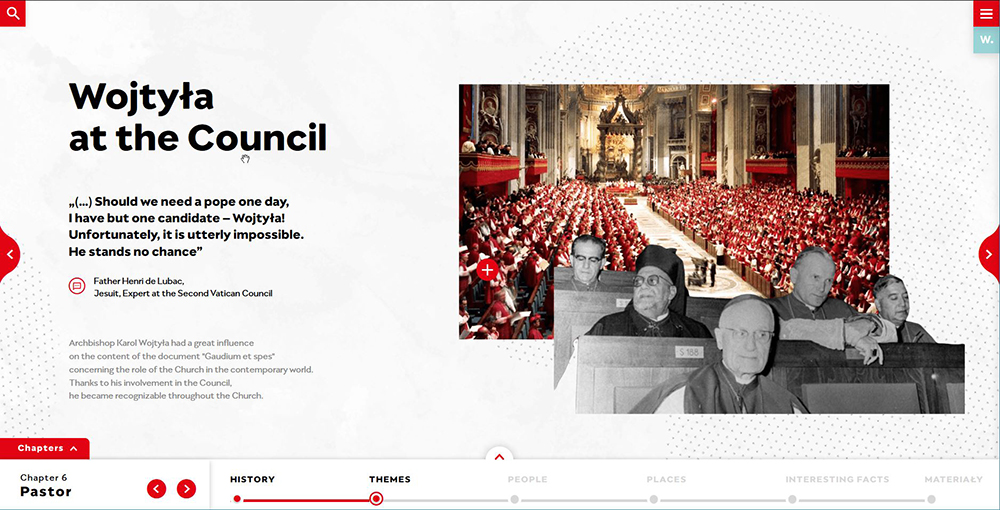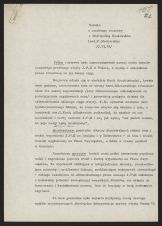JP2online portal is already two years old
Two years after its opening, the JP2online portal can be proud of further achievements. In line with our declarations of 2020, when we launched our project on the 100th anniversary of Karol Wojtyła’s birth, we are not slowing down. We continue discovering new collections, not published so far.
This work has been planned for many years. Every year we acquire new partners - state, church or private archives - to place their collections on the portal. We also write many publications showing the activities and thoughts of our patron from a new contemporary perspective.
In preparation for the opening of the portal in the years 2016 - 2020, we prepared over 16,000 pages of archival documents, 5,000 photographs, 100,000 minutes of radio recordings, 700 hours of video recordings. This was our the moment we had launched our project, but the following months were equally intensive. In 2021, we published new collections. We want to show them, summarise the last year of work and recommend items which we consider most interesting.
Let’s add that in June 2021 the multimedia biography of Karol Wojtyła, which is part of the portal, received the prestigious title of "Honorable Mention" and the certificate of "Mobile Excellence" in one of the most important competitions for web designers - Awwwards.com. The portal was also distinguished among the 5 finalists of the Historical Event of the Year 2020 competition in the Education category. We are glad that our work has been noticed and appreciated by specialists.
Mediateka - from Walentynowicz to Jaruzelski
Within two years of existence of the JP2online portal, we made available video interviews with more than 200 witnesses of history. They are very different people: Karol Wojtyła's acquaintances from the times of his youth and studies, historians and journalists, as well as figures involved in politics - from the legendary trade unionist from Gdańsk - Anna Walentynowicz, to the leader of the communist Poland - General Wojciech Jaruzelski, who had introduced the martial law in order to suppress the "Solidarity" movement. We tried to choose recordings which are most interesting in our opinion:
Can a communist dictator, the author of the martial law in Poland in 1981, be a reliable interlocutor? To what extent was he willing to be honest and truthful when talking about his political opponent - John Paul II? We invite you to answer these questions yourself.
The Cardinal talks about the global and German perspective of the pontificate. He mentions his meetings with the Pope during the synods, as well as the relationship between John Paul II and Joseph Ratzinger, later Benedict XVI. He also touches on the content of papal teaching and some controversies, such as those related to liberation theology.
A prominent Polish director talks about his personal meetings with John Paul II, his contacts during the creation of a biographical film about him, as well as the influence of the Pope's teaching on his own work. He also reflects on the importance of art and theatre in the Pope's activities.
An interesting story about the Polish-Jewish dialogue in the teaching of John Paul II, as well as papal pilgrimages and audiences in which he observed the Pope. He also shares his thoughts on the literary works of John Paul II.
One of the most famous papal photographers, who remembers Karol Wojtyła from the period when he was the priest. A very personal account full of anecdotes and stories unknown so far.
John Paul II in the eyes of people closest to him, how his working day looked like, what his habits were, what he liked best. It is also a look at the workings of the Vatican Curia from behind the scenes.
The Polish Radio Collection - voice of the speaking pope
We are closing six years of hard work by historians, editors and documentalists. Its result is over 1.5 thousand recordings of the Polish Radio. Transmissions of events, homilies, speeches from all papal pilgrimages to Poland. They include well-known, historical speeches like the one delivered in 1979 at the Victory Square in Warsaw or in Gdańsk-Zaspa in 1987. But there are also many less known, speeches though equally important. We recommend in particular:
The Pope speaking in Kiev to Ukrainians, about their identity, about their Christian ancient roots. About the "European Community of the Spirit" in which they should be present.
The historic event marking the beginning of John Paul II's pontificate, broadcast from the Polish Radio studio - translated into English by lectors.
The historic address by the Pope in which he stressed the importance of the Universal Declaration of Human Rights adopted in 1948. He referred to the situation in countries where the governments had signed the declaration and yet ignore fundamental human rights and freedoms, where the development of society and individual people is disregarded.
The Pope referred to recent events such as the fall of the Berlin Wall and bloodless revolutions in Central and Eastern Europe. He spoke of the appropriate relationship between freedom and moral truth, of the need to apply the ethics of solidarity to the economy.
New archives - history inscribed in documents
JP2online.pl already contains nearly 10 thousand unique archival documents originating from seven archives. The correspondence of John Paul II with Primate Stefan Wyszyński from the Archives of the Warsaw Archdiocese and documents concerning the surveillance of the future Pope by the SB (security service) from the archives of the Institute of National Remembrance in Kraków and Warsaw were most often read on the portal. Other archives, however, hide no less secrets. Here is a sample of some of them:
On the evening of 17 November 1976, the founders of the Workers' Defence Committee met at Bohdan Cywiński's flat: Jacek Kuroń, Jan Józef Lipski and Antoni Macierewicz. The house was under surveillance; the Security Service expected a special guest on that day. At 8.20 p.m. a siren stopped in front of the block. Cardinal Karol Wojtyła got out of it.
find out more (PL)
On 3 June 1979 in Gniezno, John Paul II reminded us that Europe consists of two equal traditions: East and West. In the Archbishop's Palace in Kraków, Cardinal Franciszek Macharski explained to an official of the Office for Religious Affairs: "This is not a call to crusade, but an attempt to appreciate the nations that are trying to be pushed around the world". Despite the explanations, the speech was seen as a manifestation of the offensive of the Holy See - the opening of the new Eastern policy.
find out more (PL)
On 13 May 1981, bullets fired by the assassin Mehmet Ali Ağca hit the Pope's stomach and hand. At the same time in Warsaw, the Primate of the Millennium's health was deteriorating and his cancer was advancing. Intensive correspondence and telephone contact continued between them.
find out more (PL)
On the evening of 17 November 1976, the founders of the Workers' Defence Committee met at Bohdan Cywiński's flat: Jacek Kuroń, Jan Józef Lipski and Antoni Macierewicz. The house was under surveillance; the Security Service expected a special guest on that day. At 8.20 p.m. a siren stopped in front of the block. Cardinal Karol Wojtyła got out of it.
find out more (PL)
On 3 June 1979 in Gniezno, John Paul II reminded us that Europe consists of two equal traditions: East and West. In the Archbishop's Palace in Kraków, Cardinal Franciszek Macharski explained to an official of the Office for Religious Affairs: "This is not a call to crusade, but an attempt to appreciate the nations that are trying to be pushed around the world". Despite the explanations, the speech was seen as a manifestation of the offensive of the Holy See - the opening of the new Eastern policy.
find out more (PL)
On 13 May 1981, bullets fired by the assassin Mehmet Ali Ağca hit the Pope's stomach and hand. At the same time in Warsaw, the Primate of the Millennium's health was deteriorating and his cancer was advancing. Intensive correspondence and telephone contact continued between them.
find out more (PL)
Image collections - a picture says more than words
Photographs of the Primate Institute
The photographs of Maria Okońska, Stefan Wyszyński's close collaborator and founder of the Institute, are exceptional not only because of their very personal nature. Most of them were taken during the Primate's holidays, when he was visited by Karol Wojtyła, the Bishop of Kraków. The photographs show how they spent their free time together, walking, relaxing, playing volleyball. The photos from the holidays in Bachledówka in Podhale awakened great interest among internet users, some even recognised their parents among the children present in the frames!
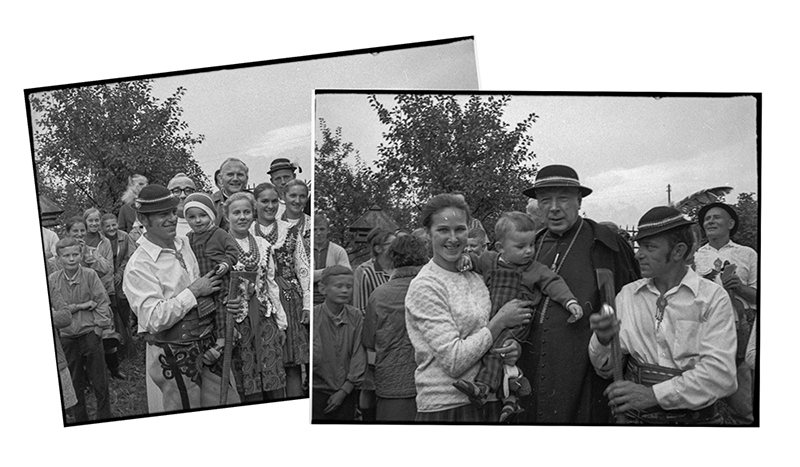
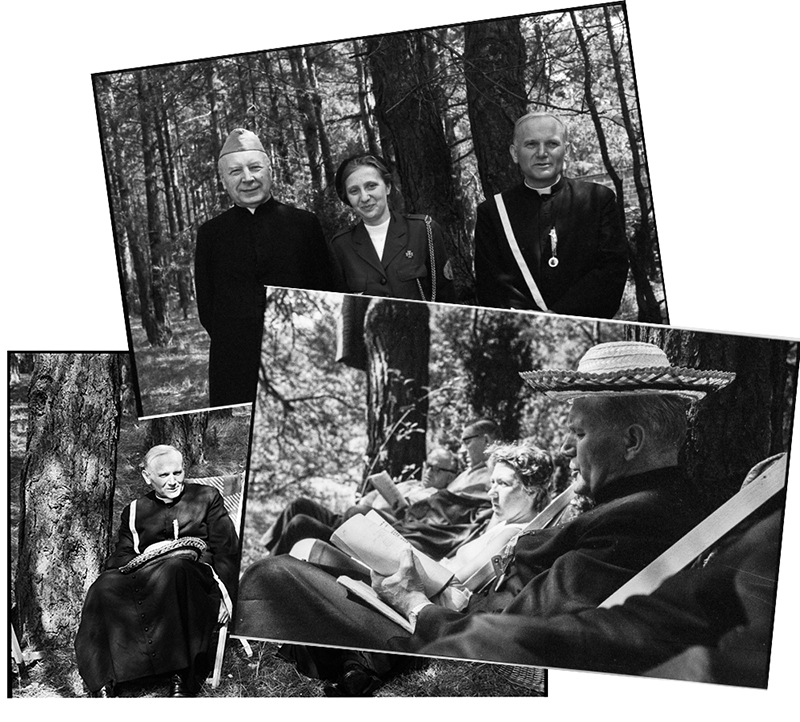
In a collection consisting of several hundred photographs taken by a Franciscan monk from Niepokalanów, a pre-war sportsman, one can see church events from all over Poland with the participation of Karol Wojtyła, then still Bishop of Kraków. In the frames we see, for example, annual processions from Wawel to Skałka, where we can see Krakow of the 1960s, completely different from today's Krakow. We can also see unique photographs of historical events, e.g. the display of a travelling copy of the Jasna Gora painting in the window of the Warsaw cathedral, "arrested" by the militia during the millennium celebrations in 1966. Despite the police order to hide it in a warehouse, the painting was placed in the window and immediately became an object of worship.
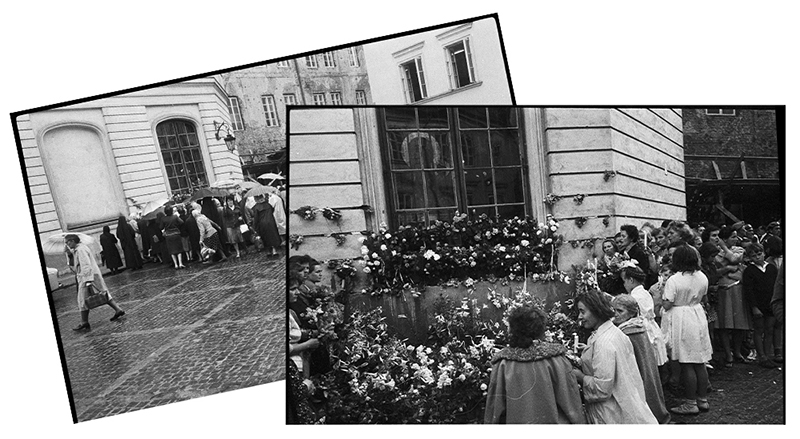
The photographs of Maria Okońska, Stefan Wyszyński's close collaborator and founder of the Institute, are exceptional not only because of their very personal nature. Most of them were taken during the Primate's holidays, when he was visited by Karol Wojtyła, the Bishop of Kraków. The photographs show how they spent their free time together, walking, relaxing, playing volleyball. The photos from the holidays in Bachledówka in Podhale awakened great interest among internet users, some even recognised their parents among the children present in the frames!

In the 1970s, the Primate spent his holidays further away from the mountains, but the future Pope also came to visit him in Gaj on the Fiszor river. Photos from these years show them spending time together in a more relaxed, friendly atmosphere.


The photographs taken by Stanisław Składanowski, a photographer working for the “Solidarity” trade union in Gdańsk, document John Paul II's 2nd and 3rd pilgrimage with reporter's sensitivity, showing not only the very centre of the event but also the situations and people in the background. In the collection you can find, for example, photos from technical preparations or weary pilgrims before and after the great events of the pilgrimage. The photographer also devoted a lot of attention to banners appearing in the crowd of participants of the papal masses.
Publications - sorting out the facts
We take up unobvious subjects, we do not avoid controversies, we streamline the facts and we look at history from today's perspective. One of the aims of these publications is an attempt to answer the question: Is John Paul II, his views and attitude to life, still relevant today? Can he be an inspiration in resolving our contemporary problems? We present below a few of the nearly one hundred publications.
Edmund - a short life fulfilled (EN, UK, ES, PL)
He taught the young Karol Wojtyla to play football, hike in the mountains and give his life for others. Edmund Wojtyla - the older brother of the future pope - died while treating his patient. We present a carefully researched article on his extraordinary life.
First foreign pilgrimage of John Paul II - Mexico 1979 (EN, UK, ES, PL)
When John Paul II entered the Mexican capital, a crowd of millions greeted him by throwing a cascade of flowers at his car. But alongside the gestures of adoration, the Pope was confronted with enormous challenges.
Assisi 1986 - Day of Prayer for Peace. Meeting of World Religions (EN, UK, ES, PL)
What was this meeting - a theological error as traditionalists claim, or a turning point opening as the media reported. We present the facts and explain the controversy.
Pilgrimage of John Paul II to Ukraine - 2001 Dimensions of unity (EN, UK, PL)
"No one has ever said so many good words about Ukraine" - commentators said about John Paul II's 2001 pilgrimage. We recall the significance of this meeting for Ukraine today.
Learning to suffer. The Death of John Paul II (EN, UK, ES, PL)
In his apostolic letter "Salvifici doloris", John Paul II wrote: "man in his suffering remains an untouchable mystery". When he died 20 years later in front of the whole world, he provoked us to face this mystery.
Edmund - a short life fulfilled (EN, UK, ES, PL)
He taught the young Karol Wojtyla to play football, hike in the mountains and give his life for others. Edmund Wojtyla - the older brother of the future pope - died while treating his patient. We present a carefully researched article on his extraordinary life.
First foreign pilgrimage of John Paul II - Mexico 1979 (EN, UK, ES, PL)
When John Paul II entered the Mexican capital, a crowd of millions greeted him by throwing a cascade of flowers at his car. But alongside the gestures of adoration, the Pope was confronted with enormous challenges.
Assisi 1986 - Day of Prayer for Peace. Meeting of World Religions (EN, UK, ES, PL)
What was this meeting - a theological error as traditionalists claim, or a turning point opening as the media reported. We present the facts and explain the controversy.
Pilgrimage of John Paul II to Ukraine - 2001 Dimensions of unity (EN, UK, PL)
"No one has ever said so many good words about Ukraine" - commentators said about John Paul II's 2001 pilgrimage. We recall the significance of this meeting for Ukraine today.
Learning to suffer. The Death of John Paul II (EN, UK, ES, PL)
In his apostolic letter "Salvifici doloris", John Paul II wrote: "man in his suffering remains an untouchable mystery". When he died 20 years later in front of the whole world, he provoked us to face this mystery.
The teaching of JP2 - papal documents in a new version
In 2021, we enhanced the JP2online.pl portal by adding 968 documents of John Paul II's teaching, which so far had been presented in the Integrated Database of Pontifical Texts. These are meticulously researched texts - each paragraph has been provided with key words which help in finding the searched fragment. On the portal they are presented in a new, more legible graphic layout.
"Thank you, woman, for being a woman! With the perceptive capacity of your femininity, you enrich a correct understanding of the world and contribute to the full truth about relationships between people" - wrote John Paul II in the "Letter to Women" in 1995. The word "woman" was searched for most often in the portal's search engine.
"Thank you, woman, for being a woman! With the perceptive capacity of your femininity, you enrich a correct understanding of the world and contribute to the full truth about relationships between people" - wrote John Paul II in the "Letter to Women" in 1995. The word "woman" was searched for most often in the portal's search engine.
The most frequently read papal document, on the other hand, was the "Prayer for Peace in the Holy Land and Around the World," which was the most commonly opened subpage on the entire portal after February 24.
Multimedia biography of Karol Wojtyła
Two years ago we opened the portal, presenting the first three parts of the multimedia biography of Karol Wojtyła, covering his childhood, studies and first years as a priest. Subsequent months of intensive work made it possible to publish new chapters. In October 2020, all seven chapters of the biography of Karol Wojtyła, from his birthday to the first days of the pontificate, were completed. In 2021, the biography was awarded the title of the Honorable Mention and the certificate of Mobile Excellence in the Awwwards.com competition for web designers. Next year we intend to supplement the biography with another 7 chapters.
"(...) if one day we need a Pope, my candidate is one: Wojtyła! Unfortunately, it is impossible. He has no chance", said Father Henri de Lubac, one of the most important experts at the Second Vatican Council. What made Karol Wojtyla so impressive as a cardinal? The period of Wojtyła's life, which we have elaborated for the biographical study, is poorly known and yet it is crucial for understanding the pontificate of John Paul II. Episcopal ministry, philosophical preparation, participation in the Council and journeys with friends across Poland from Bieszczady to Pomerania - all this shaped the personality and style of the future Pope.
Sources
Photos/documents
Photos/documents
Project implemented by: 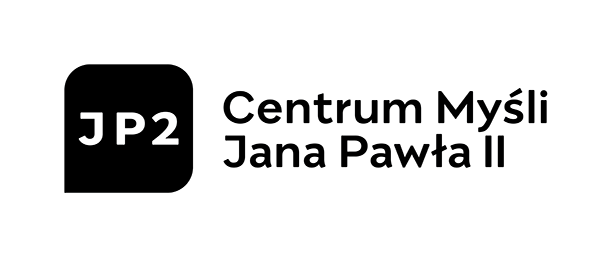

Project co-financed by: 

Patronage: 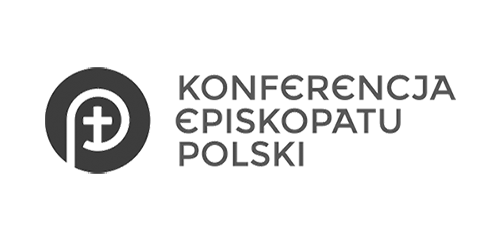

Partners: 